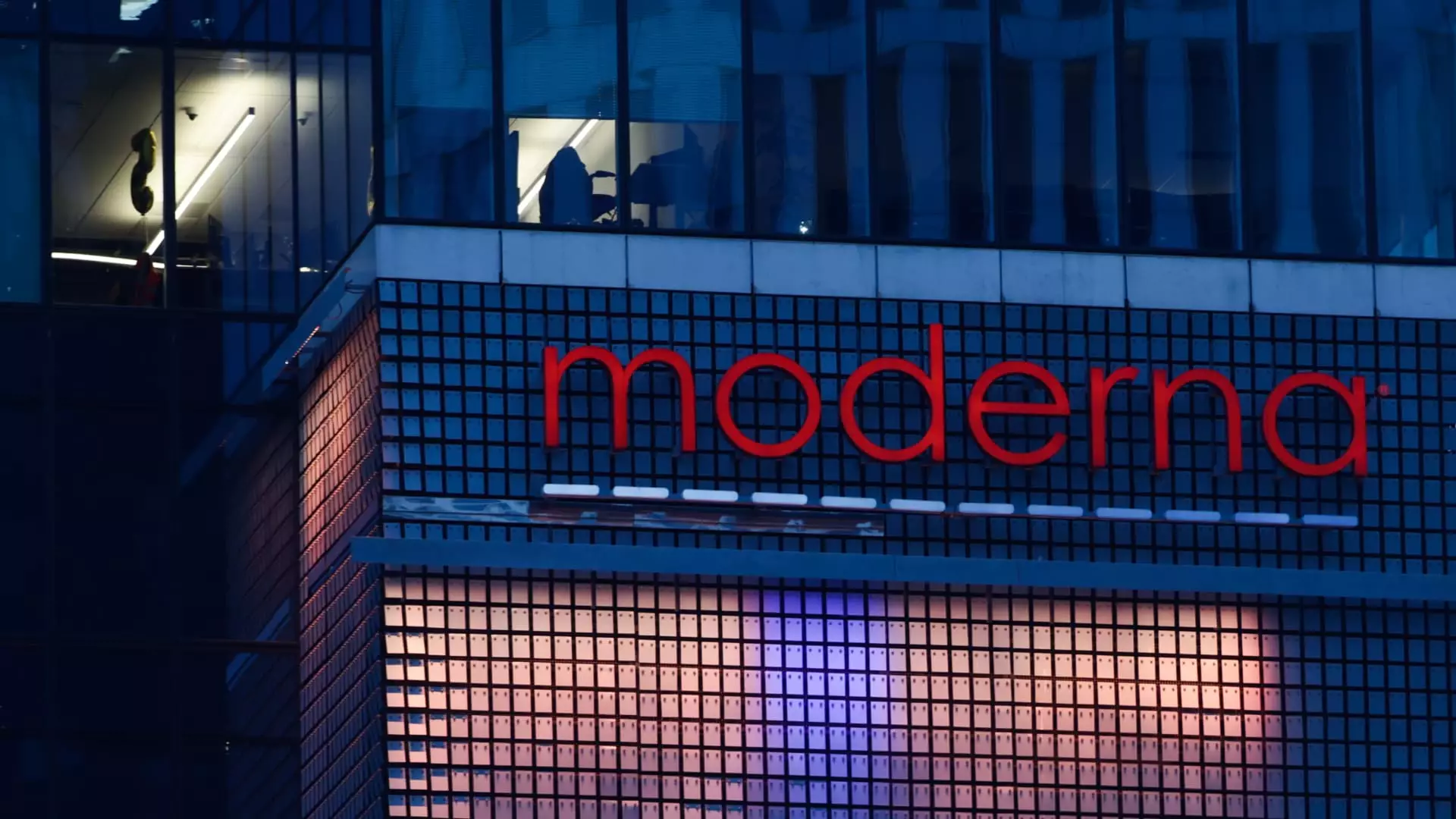Moderna’s recent 2% stock surge following positive late-stage trial results for its flu vaccine may seem like a promising breakthrough at first glance. However, beneath the surface lies an uncomfortable truth about the biotech sector’s relentless push for experimental drugs. While innovation in healthcare is undeniably crucial, the accelerated rollout of new vaccines often outpaces comprehensive understanding of their long-term efficacy and safety. Moderna’s momentum reflects investors’ optimism more than patient outcomes, underscoring the risky dance between profit and public health. This moment epitomizes the broader challenge for regulators attempting to balance encouraging innovation while preserving caution in an increasingly profit-driven medical marketplace.
Government Intervention Breeds Market Volatility: The HPE-Juniper Case
Shares of Hewlett Packard Enterprise and Juniper Networks soaring up to 14% and 8% respectively after the U.S. Department of Justice dropped its lawsuit against their $14 billion merger is a classic case of government’s inconsistent interference. Such legal battles and their abrupt resolutions reveal a paradox: regulators claim to protect competition yet often unsettle markets and businesses in the process. The DOJ’s settlement appears less of a principled stand than a reluctant admission of strategic overreach. This episode highlights a broader risk for the tech sector, where regulatory unpredictability can either stifle growth or catalyze complex dealmaking dances—none of which necessarily benefit the average consumer or the true spirit of market competition.
Meta’s AI Talent Acquisition: Ambition or Bandwagon Hype?
Meta Platforms’ decision to poach four prominent AI researchers from OpenAI for its Superintelligence group reflects not just technological ambition but the feverish race within Silicon Valley to dominate AI. While adding star talent may sound impressive, this move exposes the tech giant’s underlying struggle to remain relevant amid the AI hype sweeping the industry. Meta’s pivot toward AI is less about a clear vision for societal benefit and more about rebranding itself in an era where staying cutting-edge is a survival imperative. The real question is whether this AI gold rush will result in transformative products or simply fuel speculative market frenzy that funnels capital into bloated valuations with dubious long-term value.
Home Depot’s $4.3 Billion Bet on GMS: Overreach or Sharp Strategy?
Home Depot’s acquisition offer for GMS, trumping an unsolicited bid from QXO and triggering an 11% stock jump, exposes the strategic gambits companies undertake in high-stakes acquisitions. While the retail giant’s move seems aggressive, it speaks to an urgent need for consolidation in specialty building products amid uncertain economic cycles. Yet, one must wonder if such concentration stifles competition or inflates valuations beyond sustainable levels. The purchase also reflects broader economic shifts where giants leverage buyouts to cement dominance in sectors critical to infrastructure, raising important questions about market health and the pricing power of monopolistic behaviors.
Palantir and Accenture: The Federal AI Partnership’s Double-Edged Sword
Palantir and Accenture’s partnership to bring AI-driven solutions to U.S. federal agencies—evidenced by their 5% and 1% stock boosts—shows the growing fusion of tech and government power. While AI promises efficiency, automating federal operations risks sidelining human judgment and inflating bureaucratic opacity behind algorithmic screens. Both companies stand to profit massively from this union, highlighting the revolving door between private tech firms and public institutions. This alliance illustrates how AI’s promise can obscure the ethical dilemmas posed by automating critical governmental functions without adequate transparency or accountability, potentially undermining democratic oversight.
Disney’s Rebound: Nostalgia or Genuine Resilience?
The marginal 2% uplift in Disney’s stock following Jefferies’ upgrade and hopes for cruising revenue growth illustrates the allure of past successes rather than clear new growth drivers. Disney’s parks holding steady is comforting but leans heavily on recovering old revenue streams rather than innovative expansions. Betting on upcoming ships to boost cruising revenue in 2026 feels speculative and echoes a reliance on legacy assets in an unpredictable entertainment landscape. This cautious optimism may mask deeper structural challenges for Disney as streaming wars intensify and consumer preferences fragment.
Tesla’s Slump Amid Political Uncertainty: A Stark Reminder
Tesla’s nearly 1% decline after President Trump’s spending bill advanced—threatening clean energy tax credits—brings into sharp relief the vulnerability of EV manufacturers to political headwinds. This development is a sobering example of how policy decisions can abruptly reshape the economic prospects of entire industries. Tesla’s struggle isn’t just about market competition but hinges on volatile government support. The incident underscores a critical flaw in the renewable energy revolution: its heavy dependence on government incentives rather than fundamental market forces. Until that changes, companies like Tesla will continue to face precarious futures tethered to political tides.
—
This collection of market moves paints a complex picture of an economic environment in flux—one where innovation, government intervention, corporate ambition, and political uncertainty intertwine. Far from a simple story of progress or decline, today’s financial headlines reveal tensions that demand sharper scrutiny and skepticism beyond surface-level optimism.

